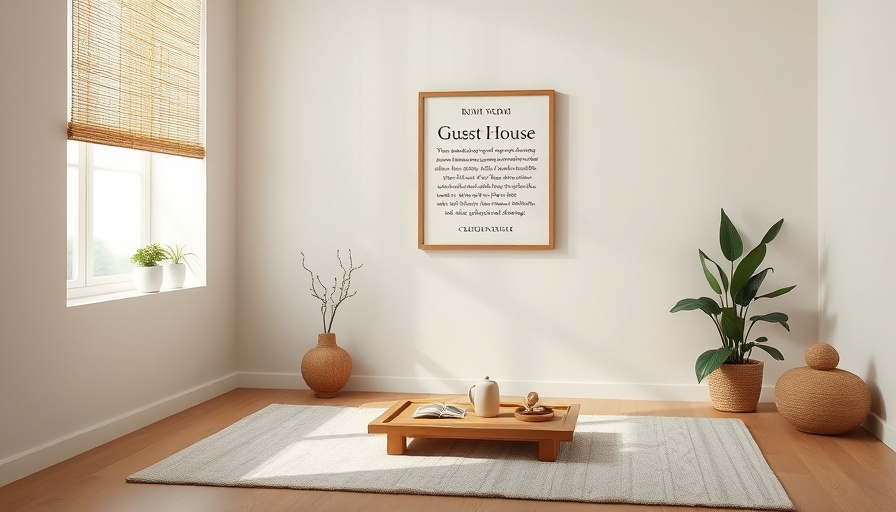
Discover Mindfulness: A Pathway to Managing Anxiety and Stress
As modern life continues to escalate into a whirlwind of obligations, responsibilities, and uncertainties, mindfulness has emerged as an effective antidote to anxiety and stress. This age-old practice helps individuals tune into their present experiences, fostering emotional resilience and promoting mental health. According to a growing body of research, mindfulness techniques not only alleviate symptoms of anxiety but also enhance overall well-being.
Understanding Mindfulness and Its Benefits
Mindfulness serves as a powerful tool for combating anxiety disorders, which affect millions worldwide. The practice involves maintaining a moment-to-moment awareness of our thoughts, feelings, and bodily sensations. Rather than avoiding these experiences, mindfulness encourages individuals to engage with them compassionately, creating a healthier relationship with anxiety. Studies have shown that integrating mindfulness into daily life can significantly reduce the impact of panic attacks and generalized anxiety disorder (GAD) by fostering emotional regulation and promoting relaxation.
Simple Mindfulness Techniques for Everyday Use
You don’t need to invest hours into rigorous training to harness the benefits of mindfulness. Simple techniques can be seamlessly integrated into your daily routine, providing immediate relief from anxiety:
- Set Intentions: Start your day by setting a clear intention. This could involve choosing to respond to challenges with calm or reminding yourself to breathe deeply when stressful situations arise.
- Practice Breathing Exercises: Deep breathing can instantly activate your body’s relaxation response. Techniques such as box breathing—inhale for four counts, hold for four, exhale for four, and hold for another four—help ground you in the present moment.
- Engage Your Senses: Use mindful walks as a way to reconnect with nature. Pay attention to the sounds around you, the sensations in your body, and the beauty of your environment. This practice allows you to immerse yourself in the here and now, combating racing thoughts.
Cognitive Behavioral Approaches to Mindfulness
Combining mindfulness with Cognitive Behavioral Therapy (CBT) techniques has shown promising results in treating anxiety. This dual approach emphasizes recognizing negative thought patterns and non-judgmentally observing them, rather than becoming overwhelmed. Worksheets from experts like Forsyth & Eifert encourage mindfulness via techniques such as 'accepting, choosing, and taking action,' allowing practitioners to move beyond anxiety without battling it.
Practical Applications for Managing Anxiety
Mindfulness can be effective in various contexts—from workplace environments to educational settings. Incorporating mindfulness practices into school-based programs, for example, can help students manage stress, enhance their focus, and create a supportive atmosphere. Participants who engage in mindfulness report decreased workplace anxiety, improved productivity, and enhanced overall mental health. Programs that prioritize mental health education can further equip individuals with strategies to manage anxiety and reduce stigma.
The Role of Community in Mindfulness Practice
Mindfulness is most beneficial when practiced within a supportive community. Support groups and counseling services can significantly enhance one’s mindfulness journey by offering shared experiences and collective learning. Peer support creates opportunities to connect with others, reducing feelings of isolation common in those facing mental health challenges.
Embracing Mindfulness for a Resilient Future
Ultimately, cultivating mindfulness is a journey of self-compassion where individuals learn to embrace their emotions rather than avoid them. As we continually face societal pressures, economic stressors, and the ongoing impacts of global events like COVID-19, fostering resilience through mindfulness is crucial. Practicing mindfulness fosters hope and empowers individuals to navigate their anxiety challenges constructively, leading to healthier communities.
For those seeking additional resources, online platforms now offer numerous mindfulness exercises tailored for personal use or therapy settings—making it easier than ever to initiate this transformative practice. By embracing mindfulness, you are choosing to step away from anxiety’s grip and into a healthier, more fulfilling life.
 Add Row
Add Row  Add
Add 




Write A Comment